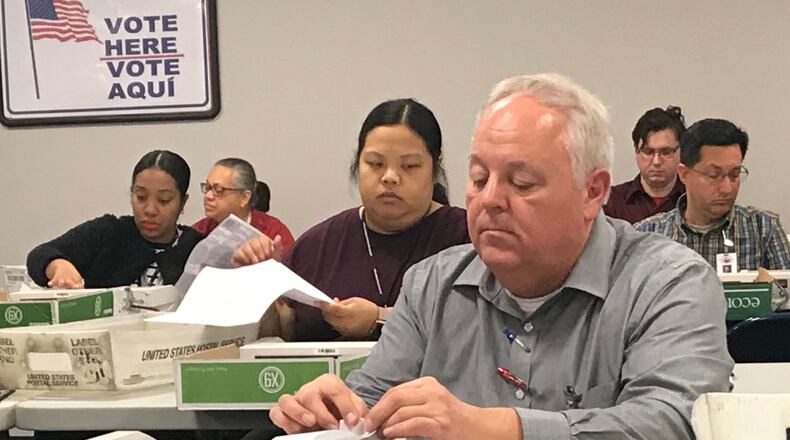After weeks of litigation, contention and sometimes chaos, -— including a tense Thursday evening meeting — Gwinnett County has certified its election results.
Gwinnett, which took center stage in the larger statewide fight over voting rights and voter access, is believed to be the final county in Georgia to certify, though new guidance from the Secretary of State's office may ultimately force some jurisdictions to re-certify.
Gwinnett’s elections board, which had originally intended to certify its results two days earlier, did so instead during a special-called Thursday evening meeting. The additional time was necessitated by a previous order mandating the county count absentee ballots that had previously been rejected due to birthdate issues, officials said.
The meeting grew tense and heated at multiple points, with activists and advocates from both side of the voting rights issue shouting at each other and waving signs.
During a recess, election board chairman Stephen Day played hall monitor and said he would bring in police to maintain the peace.
“I would ask that we act like mature adults,” Day said.
A handful of Gwinnett County sheriff’s deputies later arrived and stayed through the remainder of the meeting.
Eventually, the board accepted several hundred “new” votes, including 444 absentee ballots that were previously rejected due to birthdate issues; 113 ballots from military overseas; and 15 provisional ballots.
A portion of those votes were from the 7th Congressional District, where Democrat Carolyn Bourdeaux gained about 100 votes on Republican incumbent Rob Woodall but appeared to fall short by about 400 total votes. Bourdeaux tried and failed Thursday to have even more absentee ballots counted.
The votes also were added to totals in the race for Georgia's next governor. Democratic candidate Stacey Abrams, who has pushed for as many votes as possible to be counted, gained about 165 votes on Republican Brian Kemp but was still thousands of votes away from forcing a runoff.
Gwinnett has been a target of Democrats and voting rights advocates in several lawsuits that are still being litigated. It was homed in on because of what’s been viewed as a disproportionate rate of rejection for various types of ballots.
During Thursday’s meeting, the elections board also conducted what are called recanvasses — a sort of electronic audit of voting machines and their results — for four different precincts. The process was requested in two different filings, one submitted by a group of activists and the other by Smythe Duval, who ran for Secretary of State as a Libertarian.
Two of the precincts being audited were those housed at Annistown and Anderson-Livsey elementary schools, the Snellville-area precincts that had significant technological issues on Election Day.
Thursday’s results were no different from those on Election Day, officials said.
About the Author
Keep Reading
The Latest
Featured

